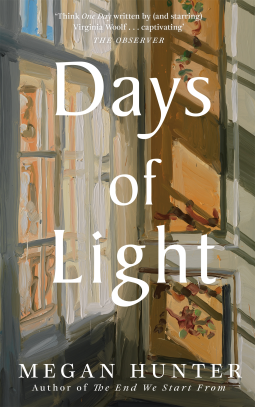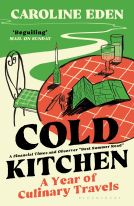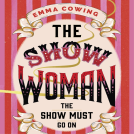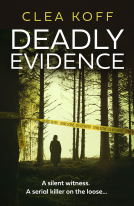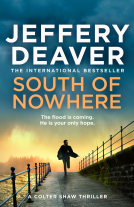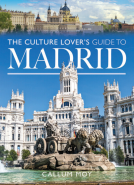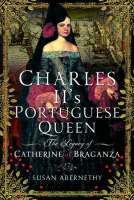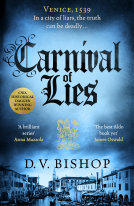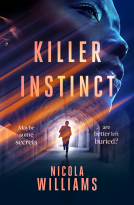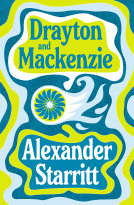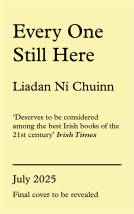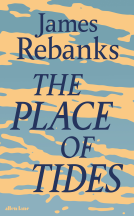Days of Light
by Megan Hunter
You must sign in to see if this title is available for request. Sign In or Register Now
Send NetGalley books directly to your Kindle or Kindle app
1
To read on a Kindle or Kindle app, please add kindle@netgalley.com as an approved email address to receive files in your Amazon account. Click here for step-by-step instructions.
2
Also find your Kindle email address within your Amazon account, and enter it here.
Pub Date 17 Apr 2025 | Archive Date 17 Apr 2025
Pan Macmillan | Picador
Talking about this book? Use #DaysofLight #NetGalley. More hashtag tips!
Description
'Think One Day written by (and starring) Virginia Woolf . . . lyrical and captivating' -The Observer
'Radiant, absorbing, sensual' - Joanna Quinn, author of The Whalebone Theatre
'Beautiful' - Sophie Elmhirst, author of Maurice and Maralyn
From the author of The End We Start From, now a major film starring Jodie Comer, and taking inspiration from the influential Bloomsbury Group, Days of Light is a sweeping, gorgeous story for fans of Mothering Sunday and The Hours.
Easter Sunday, 1938. Ivy is nineteen and ready for her life to finally begin. In the idyllic Sussex countryside, her sprawling, bohemian family and their friends gather for lunch, awaiting the arrival of a longed-for guest.
It is a single, enchanted afternoon that ends in tragedy.
Days later, at a funeral, Ivy is kissed by the man she will marry, and grieves with the woman who will become the love of her life. And this is only the beginning . . .
Chronicling six pivotal days across six decades, Days of Light moves through the Second World War and the twentieth century on a radiant journey through a life lived in pursuit of love and in search of an answer.
'Wonderful, luminous' - Mark Haddon, author of The Curious Incident of the Dog in the Night-Time
'The characters stay with you in the best way' - Sarah Moss, author of Summerwater
'Sublime. Wielding tremendous emotional power, it is a novel that is both raw and reverent' - Hannah Kent, author of Burial Rites
Advance Praise
Praise for The End We Start From:
'Beautifully spare and haunting' Emily St. John Mandel, author of Station Eleven
'Extraordinary. Megan Hunter's prose is exquisite' Hannah Kent, author of Burial Rites
Praise for The End We Start From:
'Beautifully spare and haunting' Emily St. John Mandel, author of Station Eleven
'Extraordinary. Megan Hunter's prose is exquisite' Hannah Kent, author of Burial Rites
Available Editions
| EDITION | Other Format |
| ISBN | 9781529010183 |
| PRICE | £18.99 (GBP) |
| PAGES | 288 |
Available on NetGalley
Featured Reviews
 louisa t, Reviewer
louisa t, Reviewer
4+ ⭐
I was a bit misty eyed by the end of this.
Six days with Ivy, and yet I felt I knew her so well.
Admittedly, six very important days.
We start with a fairly ordinary family Easter, lunch and from there I was hooked.
Pulled on my heart strings a fair few times.
 Tracy S, Librarian
Tracy S, Librarian
Six days of Ivys young life at the start of the War is intense as much as it's tragic.
Ivy is spending time with her family, who are rather free and easy about life when tragedy strikes and wordls and lives are changed forever.
This book is a great read. it is a slow burn but oh how I loved it.
The author is a good storyteller and I felt all emotions and gasped at times at what happened next.
Not what i expected at all but I like when a book surprises me..
 Susan O, Reviewer
Susan O, Reviewer
I loved both The End We Start From and The Harpy making me keen to read Megan Hunter’s new novel which tells the story of Ivy, the daughter of a bohemian family, through six pivotal days in her life beginning with Easter Sunday in 1938 which ends in tragedy.
Nineteen-year-old Ivy wakes to what she expects to be a special day. Her beloved brother Joseph has invited the woman with whom he’s in love to stay and Ivy is eager to meet her. At a funeral, two weeks later she finds solace with a man much older than herself which will lead to marriage and children. Towards the end of the war, a friendship ripens into a love that might fulfil her longing for meaning, hopes dashed ten years later on a day in which she experiences an epiphany pointing her to another way of life. On the sixth day, Ivy remembers the many Easters she has lived through and the course her life has taken, understanding that her quest for meaning has been fulfilled.
Ivy’s story is unfolded from her own perspective although not in her own voice which suits this woman cast as an observer on the edges of a colourful family caught up in their own lives, unsure of her own place in the world. Hunter’s writing is luminously beautiful at times and there’s an elegiac quality to the early part of the novel which lends it a gentle melancholy. Throughout it all, Ivy remains haunted by the tragedy of 1938, unsure to the end if she might have played a part in it. Looking at other reviews, I see that some readers found Hunter’s novel unsatisfying, but I loved it, partly its structure suited it well but mostly for its quietly gorgeous writing.
Days of Light by Megan Hunter is a poignant exploration of a life shaped by both love and loss, set against the backdrop of a rapidly changing world. The story begins on Easter Sunday, 1938, when Ivy, a nineteen-year-old at the cusp of adulthood, eagerly awaits the arrival of a longed-for guest. Her bohemian family gathers in the idyllic Sussex countryside, and while Britain teeters on the brink of war, the day feels suspended in a timeless moment of possibility.
The day takes a tragic turn, setting the course for Ivy’s future and propelling the reader through six pivotal days spread across six decades. Each day marks a significant moment in Ivy's journey, offering a glimpse into the various stages of her life. Hunter's writing beautifully captures these moments, weaving through Ivy's experiences of love, self-discovery, and the search for answers to life’s deeper questions.
The narrative has a unique structure, beginning in the pre-war era, where Ivy’s family, with its unconventional dynamics, is as much an artistic and intellectual collective as it is a family. With an air of fluid sexuality and artistic expression, Ivy’s mother, Marina, lives in a bubble of work-focused isolation, oblivious to the lives unfolding around her. The family housekeeper, Anne, brings a sense of control and order to the household, yet her presence contrasts the swirling chaos within the family.
The tone of the book is delicate, almost timeless, with Hunter's lyrical prose creating a sense of an “old-fashioned” sensibility. The exploration of love, loss, and family dynamics is both intimate and sweeping. While the narrative may be considered contemporary, there’s an undeniable sense of nostalgia that permeates the book, evoking a world that feels far removed from the present.
Ivy’s journey is both deeply personal and universally relatable as she navigates the complexities of relationships, self-worth, and the inexorable passage of time. Days of Light is a beautifully written, emotionally resonant tale that will stay with you long after the final page, offering a meditation on life’s fleeting moments and the enduring search for meaning in a world on the verge of great change. Highly recommended for those who enjoy reflective, character-driven stories set against the ebb and flow of history.
Read more at The Secret Book Review.
 Anita W, Reviewer
Anita W, Reviewer
This is a rather strange story; one in which nothing much happens, but everything happens. All reviewed from the perspective of a single day at different times in Ivy’s life. It starts with a very upper class setting; a family gathering at the country estate in 1938. Ivy is 19 and on the cusp of adulthood and looking forward to this Easter weekend gathering, unaware how events will shape her. I felt I started to knowIvy as a person; her character, aspirations etc and warmed to her. The family was an odd bunch, but it’s rich in detail and I was soon involved in her and their interests.
Using a single point of reference on five further occasions in Ivy’s life is an unusual narrative tool and by and large it works, It’s interesting to reflect on those threads that bind us and Megan Hunter has selected an eclectic mix of influences throughout Ivy’s life over some sixty decades. Her writing is effortless. It flows beautifully and it’s a story to devour with ease. That takes a real skill and there wasn’t a moment where I was irritated by clunkiness or contrivance. Absolutely 5* for such exceptional writing. I thought the best part was the Easter 1938 gathering which reminded me of Elizabeth Jane Howard and the Cazalet chronicles. I think Howard is outstanding in this genre, but Megan Hunter’s writing is better. I haven’t read her earlier books and on the basis of this read will be looking these out.
A luminous masterpiece destined for the Booker shortlist
Some novels are read, others are experienced, but Days of Light by Megan Hunter is a rare work that feels as if it has been dreamt. Like sunlight fracturing through glass, its prose illuminates even the darkest corners of life, leaving a kaleidoscope of wonder in its wake. This is a shimmering meditation on existence, as ephemeral and beautiful as the light that threads its pages.
Hunter’s narrative follows Ivy, an artist of life as much as canvas, across six transformative days spanning six decades. From an enchanted Easter Sunday in 1938 to the reflective quietude of her twilight years, Ivy’s life unfolds like the unfurling of petals, fragile yet eternal. The story pivots around a single moment: an unearthly light by a riverside, both a literal vision and a metaphor for the elusive truths Ivy spends her life chasing. What was it? God, love, art, memory—all of these and none. Hunter’s genius lies in leaving the question unanswered, trusting the reader to inhabit the uncertainty as Ivy does.
The writing is luminous, as if each word were dipped in morning dew. Hunter’s prose moves like a whispered prayer—fragmentary, elliptical, but resonant with profound clarity. Her sentences seem to glow from within, suffused with a quiet reverence for life’s fleeting beauty. This is language as light, capturing not just the seen but the felt, the heard, the intuited. Reading it feels less like consuming a story and more like stepping into a cathedral of words, where each line is a stained-glass window, casting colour and shadow across the soul. A prayer.
Themes of love, God, and art are woven through the novel with an effortless grace. Yet it is motherhood that stands as the novel’s central motif, presented not as an abstract ideal but as a visceral, grounding force. Ivy’s relationships—with her children, her mother, and herself—are etched with a clarity that cuts to the bone. The novel speaks to the generative power of women’s lives, their ability to transform grief into light, love into legacy.
Hunter’s choice to structure the novel around six pivotal days is a masterstroke, distilling a life into its most resonant chords. Each chapter is like a single brushstroke in a vast painting, creating a portrait of a woman defined not by grand gestures but by quiet revolutions of the heart. The narrative’s fragmentary nature mirrors memory itself, and as Ivy revisits her past, the reader is invited to do the same, tracing the shape of their own moments of light.
And then there is the light itself—Hunter’s recurring motif, a presence that transcends understanding. It is not merely a plot device but a character in its own right, as ineffable and essential as breath. It is a stand-in for everything we cannot name but feel: the divine, the sublime, the enduring mystery of why we are here. Through Ivy’s journey, Hunter reminds us that life’s greatest truths are not meant to be grasped but held lightly, like sunlight caught in cupped hands.
Days of Light is a novel that leaves you awed and hushed, as if you’ve stepped out of a gallery where the paintings seemed to breathe. It’s a book to return to, to linger over, to carry with you like a talisman. Hunter has crafted a radiant masterpiece, a hymn to life’s fleeting beauty and enduring mystery. Surely, this is the work of an author at the height of her powers—a Booker-worthy triumph, a true symphony of light.
My thanks to Picador for an ARC via NetGalley
 Jean B, Reviewer
Jean B, Reviewer
This is a beautifully written, lyrical book following Ivy's life over six decades. She often sees things in a different way to the rest of her family and the world in general and Ms Hunter is able to describe these thoughts in beautiful detail and make the reader see things in a different way too.. Love, grief and hope combine to help make sense of her life and decisions and Light is almost a character in itself.
I feel sure I will be thinking about the characters for some time to come.
Thank you to netgalley and Pan Macmillan for an advance copy of this book.
This was a beautiful novel that I could hardly bear to end. Such an achingly sad story and yet full of hope. I've not read anything else by this author but will now search out her previous books. The story had a touch of the Cazelet Chronicles for me ( which is a compliment) and I would love there to be a sequel.
NO SPOILERS:
Days of Light is a beautiful, beautiful book, written with true literary skill. Rythmic sentences punctuated to perfection.
We follow Ivy, over six days spanning 1939 – 1999, a time of much change in the world, but here we focus on the change in Ivy, with the one constant, recurring theme being light. Light in everything. Sun, God, mystic, love, inner, peace, shadows, luminosity, art. And it is so beautifully, gently and carefully written.
Through Ivy, Hunter’s writing details all the senses, evoking so many emotions. There are intricate observations and sweeping generalisations finding joy in all things. I could feel the damp grass and smell the air. Whilst Ivy is the protagonist, life happening all around is the main character.
Expect a skilled, crafted depiction of light in all its forms in a steady plot within a thoughtful, inspiring story. Truly stunning. This should win prizes.
Every so often I dip into literary fiction and I am so glad I chose this book. The writing is beautiful, dreamlike, almost sensual at times, and so clever that it changes and grows with the phases of the narrator, Ivy’s life.
The book begins on Easter Sunday 1938 when Ivy is leaving her teenage years and charts six important days, scattered through the decades until 199. The first shapes everything; a tragedy shatters her family and she meets the love of her life.
The six days could feel like a device, but it doesn’t. It makes perfect sense and each day is put into context by memories of what has gone before. At times I was begging Ivy to take one path or another, I cared so much. And at times my choices would have been wrong. It’s a rare book to be so immersive.
 Susan B, Reviewer
Susan B, Reviewer
I really enjoyed The End We Start From so I was looking forward to reading this, although it's a very different book. The story of a sister, told over six days of her life, one of them the scene of a terrible tragedy, and how this impacts her life. The book opens just before the Second World War, when the characters know conflict is looming but the war doesn't interfere with the plot, merely functioning as a setting. I didn't have any idea what was going to happen throughout, but what an interesting turn in life, and yet the book also shines a light on how poorly the middle classes prepared their daughters for life. I thought this was an excellent novel, really interesting turns and a sensitive portrayal of a delicate relationship.
As I started reading this book I was immediatley back in one of my favourites - Mothering Sunday by Graham Swift. I hadn't spotted that part of the blurb on NetGalley's front page. The first of the six parts dealing with Ivy's life was so poignant. The similarity to Mothering Sunday didn't last beyond that first part for me but it is a lovely book, beautifully written and so very well paced and delivered. Ivy is a complex character and one that many people will no doubt relate to with her quest to find out what life is all about. The ending was perfect for the balance of the story. With thanks to NetGalley, the publisher and the author for an e-ARC to read and review. Five solid stars.
 Reviewer 1522703
Reviewer 1522703
Days of Light
What an exquisite book this was! The storytelling was haunting and atmospheric and the prose was simply emotional, sentimental and poetic …
This is story of Ivy and six pivotal days across six decades of her life… the common theme across all days is the tragedy that unfolds on that fateful Easter Sunday of 1938. This single event defines Ivy’s life and the decisions that she takes and the relationships that she forms throughout her life.
This is a book that explores life and times, emotion, even touches on art and religion and Ivy’s strength and resilience to adapt to situations that she cannot control… this is a book that ponders the distinct eras with visceral cultural and societal snapshots of the time..
This is the first book that I have read from Megan Hunter and I would love to go back and read some of her earlier works just to try and re-capture some of that lyrical prose as it was a joy to behold!
Many thanks to Picador and NetGalley for the opportunity to read this ARC
Days of Light is a real departure from The Harpy and The End We Start From thematically, but so distinctly written in Hunter’s stunningly lyrical prose. A beautiful novel about loss and grief, about love and desire, about hope and faith. A book about finding purpose in an ever-changing, complicated world. About family, motherhood and belonging, and how we relate to those we love at different stages of life, especially at times when we ourselves feel untethered. An outstanding novel that I think readers of Sarah Winman’s Still Life will love. Already cannot wait for Megan Hunter’s next book (will devour anything she writes!)
A big thank you to the lovely Picador team for the opportunity to read this one ahead of publication!
Days of Light is Megan Hunter's first foray into historical fiction and what a treat it is. This novel is sublime. I read Megan's previous release, The Harpy, and loved that also so I was keen to read her next release without delay. There's a quality to her writing that sets her apart from the masses. The way this story unfolds as well, six chapters, six days, over six decades, was such a unique way to tell a story, but it worked, it worked so well.
Days of Light is a story of love and loss, of seeking that one thing that is meant to fulfil, of seeking answers to the mystery of a life changing loss. There is a spirituality to this story that I appreciated and a vulnerability to Ivy, the protagonist, that was deeply affecting. The sense of time and place was richly realised throughout, no mean feat as the story took place across so many decades. Throughout this story, I was reminded, over and over, that it is never too late, for anything, and that sometimes, the answer is quite simply, that there is no answer.
Beautifully written, Days of Light is a stunning novel, and it left me with a serious book hangover that was impossible to shake.
Thanks to the publisher for the review copy
 Reviewer 1087058
Reviewer 1087058
Thanks to NetGalley and the publisher for an advance copy of this book.
This is a great read, 6 days overs the years of the life of Ivy starting on a fateful day in 1938 when she is 19 and ending in 1999. Ivy is a from a bohemian family where love affairs and fluid sexuality are accepted as part of life. All the adults in and connected to the family are talented and her older brother Joseph is doing well at Oxford. Ivy feels that she has no talents and wonders what will happen to her in life. In Day 1, as it says in the blurb, a terrible thing happens and although the family come to terms with it, they never really get over it.
The other 5 days tell us about Ivy, her life, her loves, her experiences. Some of these are fairly mundane and ordinary but the author writes so well about these things that Ivy could almost represent Everywoman at least in her early to middle years. No spoilers but more unusual things happen to her. As we get to know Ivy over the years, we feel her uncertainties, her joys, her surprises, her sorrows, her disappointments, her stoicism. I found day 5 to be especially moving but every day resonates.
The book is infused with light, lots of beautiful descriptions, but not over done and no purple prose, of Spring and weather and the healing qualities of light and lightness of being. I feel that this is definitely a book to re-read and enjoy all over again.
I see the book has been compared to Mothering Sunday and I suppose it shares a similar atmosphere in parts but I did not like Mothering Sunday whereas I loved this book.
 Stephen D, Educator
Stephen D, Educator
'Days of Light' is a beautiful, lyrical novel that follows the life of one woman from the 1930s to the 1990s by describing six days brightly illuminated in her memory.
We first meet Ivy on Easter Sunday in 1938 aged 19 at her beautiful family home in Sussex, where her bohemian family awaits the arrival of her brother Joseph's girlfriend Frances. But this day will end in tragedy, and over the course of the other five 'days of light', we witness Ivy's experiences of grief, love and faith. The same characters loom large in life and memory over the course of the novel - Joseph, Frances, her artist mother Marina, her father's friend Bear, the family's loyal servant Anne.
The structure, reminiscent of David Nicholls's 'One Day', allows us an effective window into Ivy's development at different stages in her life. I found this a moving and quietly captivating novel. Many thanks for NetGalley and the publisher for sending me an ARC to review.
